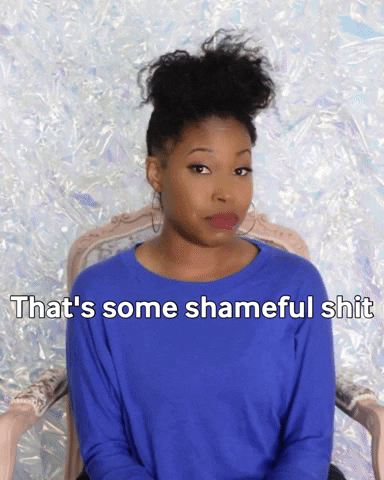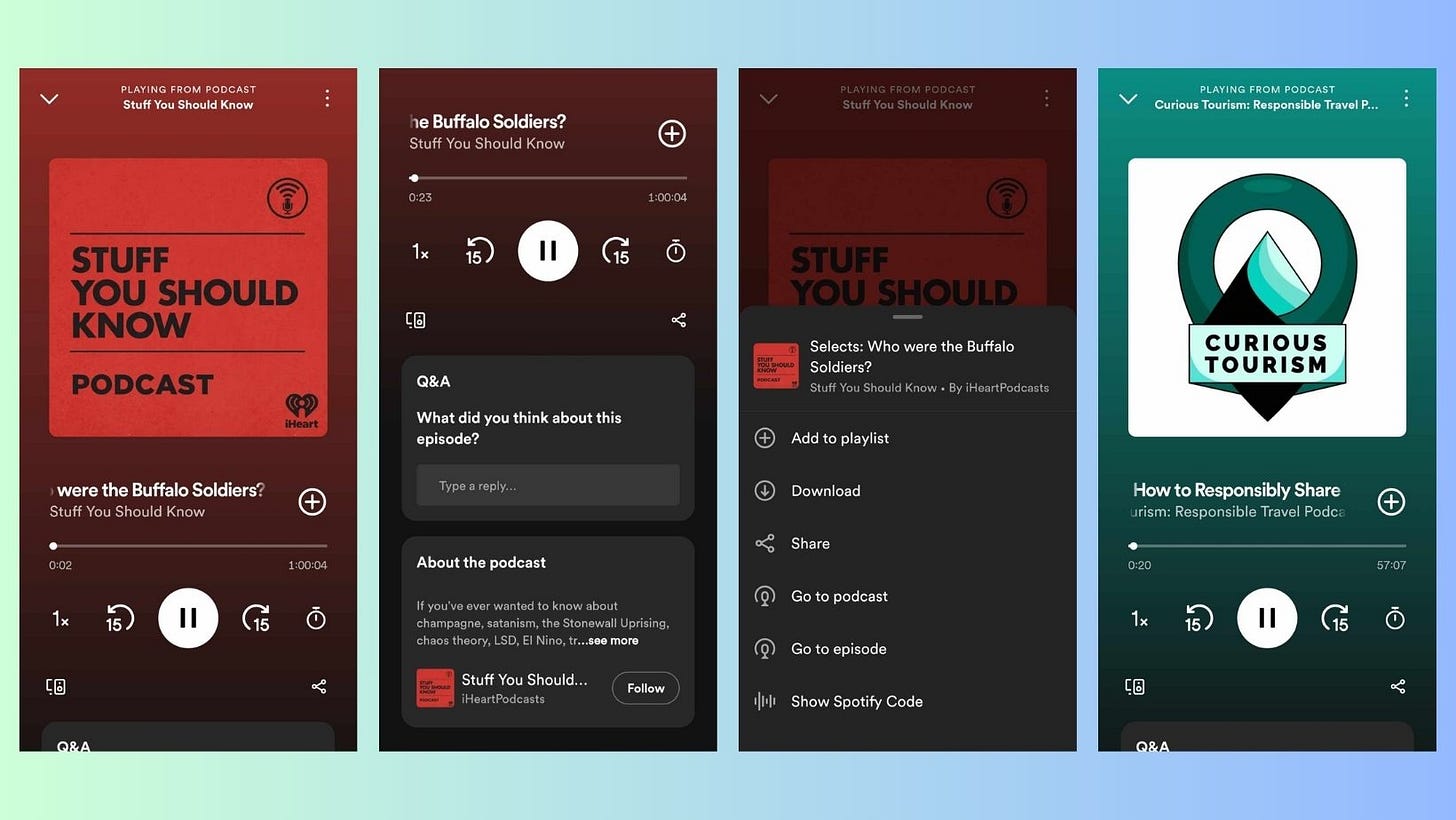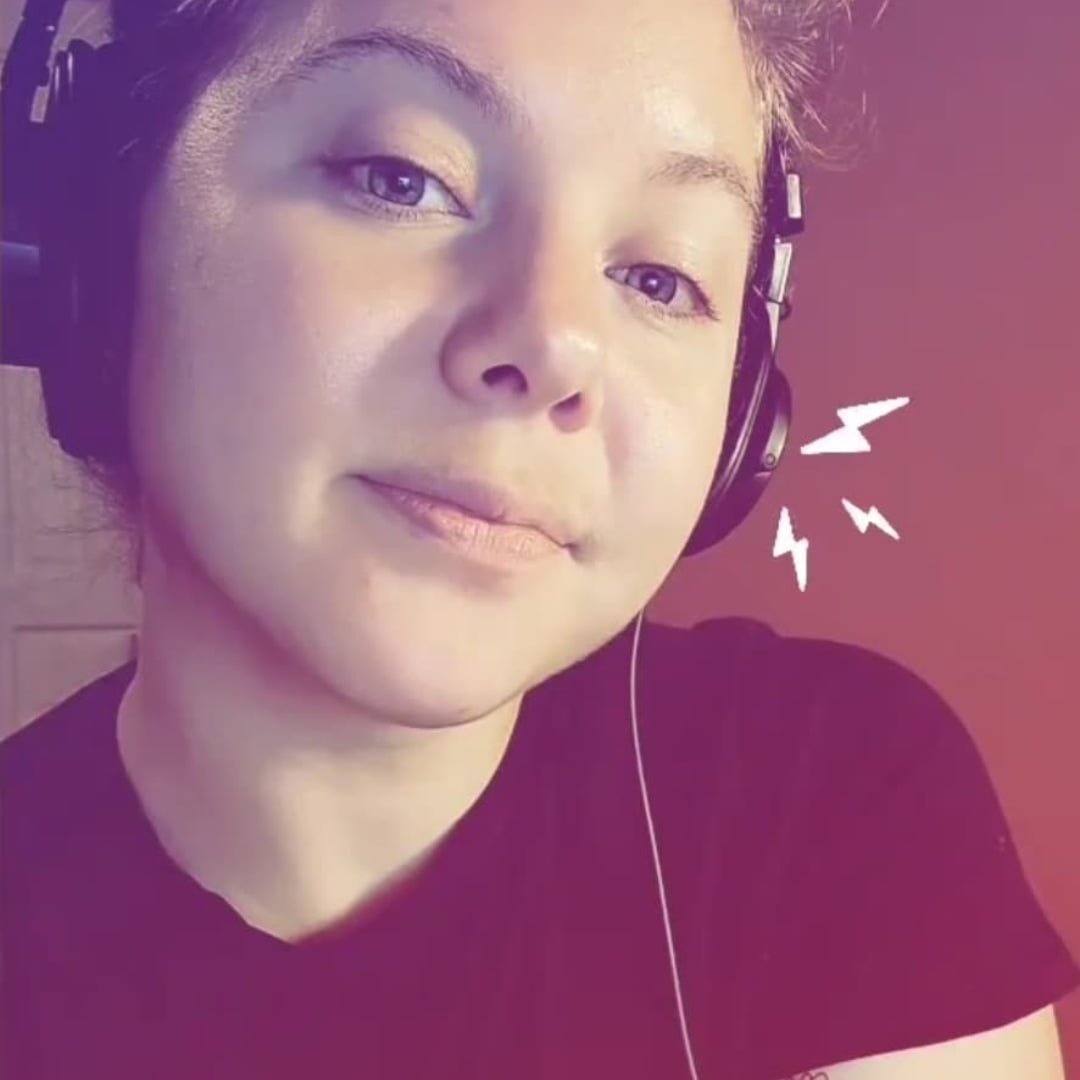Why can't I access podcast transcripts on the apps?
Vol. 32 - Frustrations around podcast transcripts, resources for your pod, and a super cute pic of Joe.
Hihi!! Happy Pod the North Tuesday!
In this issue:
Why am I uploading transcripts when no one can find them?
Canadian Indie: Red Fern Book Review
True North Podcast Feature: The Ya-Native Podcast
Data suggests publishing more episodes is not correlated with more listeners. The 2023 Podcast Marketing Trends report and more…
There are currently 28 long-term drinking water advisories in effect in 26 First Nations communities across Canada.
Transcripts for podcasts have nearly become an industry standard, and that’s great news.
But why can’t I access them?
Most of the podcasts that I work on always include a transcript along with their episodes; a word-for-word text version of their show.
To me, transcripts are one of the many factors that make a podcast professional. It shows that the team behind a show takes their podcast seriously. A podcast transcript that’s done well takes the kind of time and resources that not everyone has.
There are a number of reasons to include transcripts with your podcast.
As Jess Schmidt, freelance Podcast Producer and Accessability Advocate, explained here on Pod the North’s first ever issue, transcripts are “great for SEO and all that Google juice… But they're important to accessibility… they're the right thing to do!”
For context, in order to get a transcript, I’ll run a finished episode’s audio file through an AI system like Descript. Then, I’ll listen to the episode along with the text that it generates, fix any mistakes in the text (like changing “a boat” to “about”), and export it at a SRT or TXT file.
Actually uploading a transcript file with an episode is a pretty simple process; just uploading it along with your audio file when do you go to publish an episode on your RSS feed.
Here’s what that process looks like on Audioboom:
At this point we all know that transcripts for your podcast are important and easy enough to create if you’ve got the time and resources. However, (and maybe you’ve noticed this too)…
… regardless of uploading a transcript with a podcast episode, they’re still not accessible on most podcast apps!
Somewhere around 4 million, or 1 in 10 Canadians, are having a rough time accessing podcast content.
This is pretty notable, especially since The National Association of the Deaf (“NAD”) and Disability Rights Advocates (“DRA”) filed a lawsuit against SiriusXM, Stitcher, and Pandora back in 2021 because they did not have transcripts or captions available on any of the podcasts offered on their platforms. This case still has yet to be settled, and it’s not the first one like it either.
So yes, people with hearing loss also consume podcasts!
It’s tricky to find great data on the demand for transcripts for the people who read them, but an August 2023 “study” from audiogram platform, Headliner, found that around 20% of the podcasts that they surveyed were including transcripts with their episodes, while around 80% were not.
In a 2021 customer survey from 3Play Media, a real-time captioning service, they found that podcast accessibility was important to 52% of their customers, with accurate podcast transcriptions being a priority to 44% of those customers.
“These findings prove that podcast accessibility should not be overlooked,” said 3Play Media.
Earlier this week I coincidentally had a chance to ask one podcaster who lives with hearing loss about how she accesses transcripts and podcast content. Her experience did not at all embody the pretty seamless experience of podcast listening that most of us know and love.
The way she accesses podcast content is frankly shameful.
Point blank, there is no easy way to access transcripts on major podcast platforms like Spotify and Apple Podcasts.
While there are still a number of ways to set up live-captioning for podcasts on your phone through accessibility settings, none of them seem as convenient as a podcast app simply having the capabilities — especially when most of us have normalized and are putting the work in to create and upload transcriptions along with our episodes.
Otherwise, what’s the point?
As Toronto-based product designer, Mark Allen, wrote in a 2020 blog discussing transcripts, “in a perfect world, every podcast would have a transcript, and I could just press a button in my podcast player to send a text snippet to my notes app. Sadly, that world doesn’t exist. But you can still get pretty close if you’re willing to jump through enough hoops.”
I think it goes without saying that people with disabilities are jumping through enough hoops in this world already…
… but why don’t I break down the inaccessability of transcripts a bit more anyway?
The accessability of transcripts on Spotify’s app is especially frustrating because they are so damn close, yet so far away.
If you’ve been scrolling through the Spotify app over the last year or so, you’ve likely noticed a new feature in their browsing section where you can scroll through different podcasts and catch snippets of audio from new episodes — I call it their TikTok feature.
In each of these podcast snippets, text is generated and runs along with the audio, essentially creating an audiogram. These audiograms aren’t created and uploaded by the podcast themselves though, I know this because I’ve scrolled past my own podcast clipped in this feed. These snippets are generated by Spotify, and I’m willing to bet that this process is a part of an algorithm rather than done by humans.
But here’s the annoying part. Despite these snippets including captions, transcripts are not accessible on actual episodes within the app, even if episodes are uploaded with transcripts that Spotify could be using!
Here’s the same episode of Stuff You Should Know in the episode player (below), and a screenshow of the episode of my show, Curious Tourism, that I mentioned above which was definitely uploaded with a transcript. I looked everywhere on Spotify’s app for an option to turn on captions, to no avail.
Talking to that podcaster last week, I asked her how she accesses transcripts for the podcasts that she listens to and she mentioned that mostly she does so through a podcasts’s website. The podcast Calling Bullsh!t does this really well, but websites and user-experience-knowhow aren’t something that a lot of podcasts have.
When it comes to websites, another way to access transcriptions is through a podcasts RSS feed landing page, which often work as a podcast’s stand-in website, but like a regular website, it only works when a transcripts has actually been generated by the podcaster.
If you head to the Audioboom landing page for any Curious Tourism episode you’ll find our transcripts there, but they certainly aren’t pretty and they don’t play along with the audio like live-captions do. Here’s another screenshot:
Otherwise, the podcaster I talked to opts for video podcasts, where she can rely on lip-reading and the option to turn on captions on YouTube — a solid argument for video podcasts and video essays.
It’s especially wild to me that captions and transcripts are so hard to come by on podcast apps, when they’ve become a MUST for TikTok users. To me, both mediums are practically on par when it comes to popularity.
Prior to TikTok’s launch of their powerful auto-captioning tool, TikTok creators were getting called out in the comments of their videos for not including captions in their content.
This social norm made TikTok one of the most accessible apps and communities that I’ve certainly come across. TikTok has now become a space where UC Davis communications professor, Martin Hilbert, said that subtitles actually complement the content rather than replace it. Couldn’t the same go for podcasts?
There’s a demand and a quickly brewing social norm around universally accessible content, so why are podcast apps lagging behind?
Are you just as frustrated as me? Or, have you found a solution here?
Let me know your thoughts in the comments on Substack or in a reply to this email!
Check out this Canadian Indie: Red Fern Book Review
Find your book club picks and get your literary fix here.
Amy Mair leads bookish discussions with authors, friends and family minus the scheduling, wine, charcuterie board and the book you didn’t have time to finish.
Her tastes skew toward the literary but she can’t resist a good thriller or the must-read book of the season. If you like authors like Donna Tartt, Ann Patchett, Jonathan Franzen, Marie Benedict and Rachel Hawkins this podcast is for you.
True North Podcast Feature: The Ya-Native Podcast
Our mission is clear: to foster solidarity among Native American nations.
In a world where the rich tapestry of Native American cultures, histories, and struggles often goes unheard, Ya-Native serves as a platform for education, empowerment, and unity.
Dive deep into the heart of Native America, shedding light on the critical topics and challenges that affect indigenous communities across the continent. From cultural preservation and sovereignty rights to environmental concerns and social justice, catch insightful conversations with tribal leaders, activists, artists, scholars, and everyday heroes who are making a difference.
What’s going on in Canada’s podcast ecosystem:
You should know…
Harbinger Media Network is dropping something big this week!
While I don’t know anything about what the news might be yet, you can catch the official announcement in their Wednesday newsletter and tune into The Rob Rousseau Show livestream on TwitchTV from 12-4 EST tomorrow, November 15th.
People are worried about YouTube’s approach to podcasting.
‘s Tony Doe Onwuchekwa recently shared his insights about Youtube’s podcasting limitations with ad restrictions, RSS handling and listener data. Can Youtube truly accommodate audio-only podcasts? Read more.‘s Pod Chat is gone, but Be a Better Podcaster is here! More from Danny on this below.
Events:
Sandy and Nora Talk Politics will be LIVE in Winnepeg on November 24th! Catch these two badass news commentators at the West End Cultural Centre and get your tickets here!
The Audio Bluenosers meet-up in Halifax is back! Catch up with like-minded east-coast podcasters on December 6th from 5-7 PM at the Centre for Art Tapes. Feel free to bring your own beverage and snacks to share or not! Register here.
For your pod:
The 2023 Podcast Marketing Trends report is now live! The data was captured from 521 podcasters and industry professionals from a diverse set of personal backgrounds, niches, formats, and experience. The is a great report to check out that answers plenty of helpful questions like “how likely is podcast growth?” and unpacks why publishing more episodes is not necessarily correlated with more listeners.
Continuing the discussion on YouTube Podcasts, the team at Buzzsprout has shared everything they know about YouTube Podcasts.
Only three days are left to submit your podcast to The Ambies. There are just under 30 categories for podcasts and talent. Entries are $200 for members and $250 for non-members.
Brands In Audio is the first-ever directory exclusively for branded podcasts, created by Lower Street and Sounds Profitable. If you have a branded podcast, be sure to submit yours!
Just Joe, (my muse)…
If you have thoughts or Canadian podcasting news, please share them with me! Leave a comment or reply to the newsletter email.
If you’re feeling generous there are a couple ways to financially support Pod the North at any budget. You can opt-in to pay for this Substack on a monthly or yearly basis, buy me a coffee, or now, buy an ad!
Thanks for supporting Pod the North, I’ll be back in your inbox in two weeks!
Kattie | @Podkatt (Twitter, Spotify, and Goodpods) | @PodtheNorth (Bluesky)









Yes I agree. The 3/4 podcast apps should have the ability to view captions. I can't stress how important it is to be inclusive and make sure that everyone can enjoy your podcast.